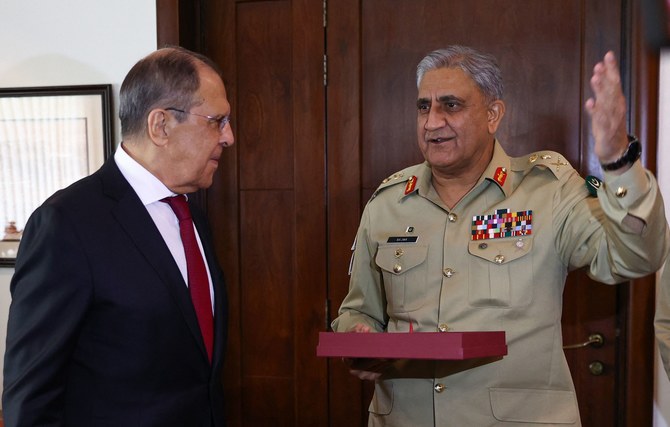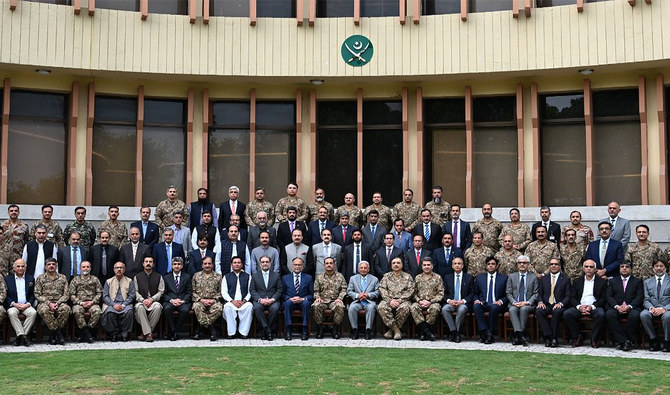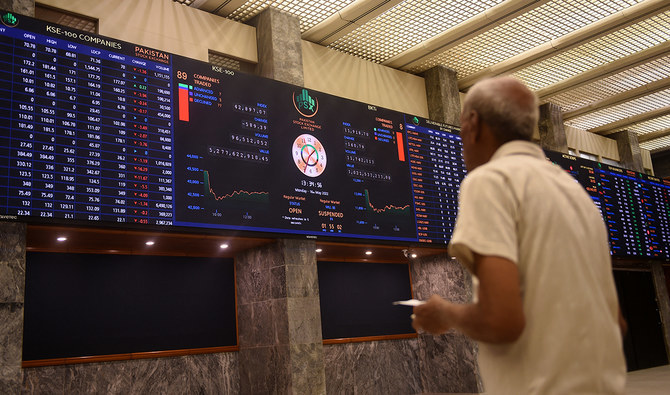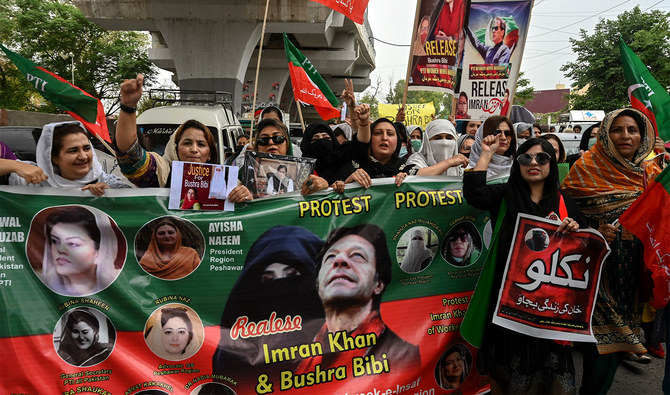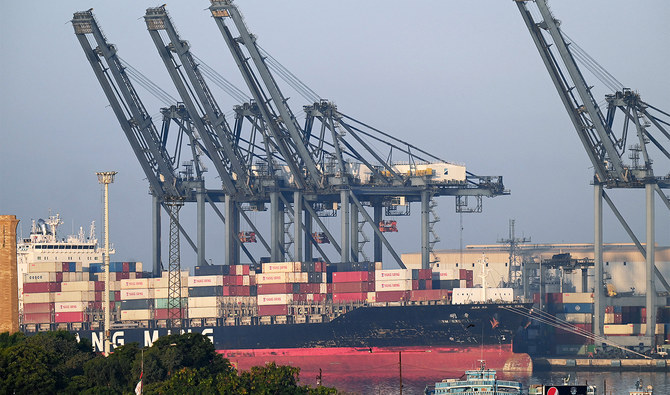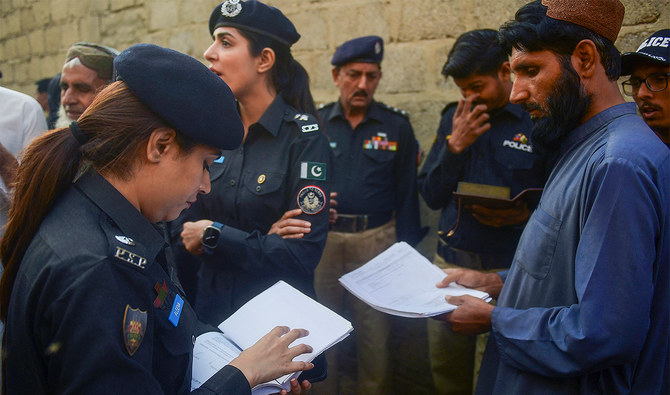ISLAMABAD: Russia will provide 150,000 more doses of the Sputnik V coronavirus vaccine to Pakistan, Russia’s foreign minister said on Wednesday, adding that Moscow and Islamabad would boost counterterrorism relations, with Russia providing unspecified military equipment to Islamabad and the two nations holding joint exercises at sea and in the mountains.
Sergey Lavrov’s visit to Pakistan is the first by a Russian foreign minister in nine years and comes as Moscow has cultivated ties with Afghan Taliban militants who are fighting US troops and have historic links to Islamabad. Moscow says it is encouraging peace negotiations in Afghanistan to end decades of war.
“Fifty thousand doses have already been delivered to Pakistan, and soon another 150,000 will be delivered,” the Russian foreign minister said at a joint press conference with his Pakistani counterpart Shah Mahmood Qureshi.
“Pakistan’s needs are immeasurably greater, but so far everything rests on the ability to produce this vaccine not only in the Russian Federation, but also in the countries that are our foreign partners. Such production has already been established in India, Belarus, and will soon begin in the Republic of Korea and a number of other countries.”
Lavrov added: “We will be ready to try to help our Pakistani colleagues meet their needs using the available opportunities. But we have obligations to those countries that have previously addressed us with this request.”
Russia’s Sputnik news agency reported that Qureshi said at a press conference after talks with Lavrov that Pakistan wanted to buy five million doses of Sputnik V and discuss potential local production.
“The Sputnik vaccine was registered [for emergency use] in Pakistan and is being administered in Pakistan, it is giving good results, and we are interested in the commercial purchase of five million doses from Russia ... and I think there are opportunities of local production and joint ventures; there are interested parties,” Qureshi said.
During the talks, the two ministers also discussed bilateral cooperation in various areas, in particular the energy sector and railroad modernization.
“We have a new area of cooperation related to energy between Rosatom and the Pakistan Atomic Energy Commission. We are now discussing, in practical terms, specific cooperation on non-electric peaceful applications for nuclear energy, particularly in medicine and industry,” Lavrov was quoted by Sputnik as saying.
Qureshi said Pakistani receiving Russian expertise to modernize its energy and railways sectors was also discussed.
“We stand ready to strengthen the anti-terrorist potential of Pakistan, including by supplying Pakistan with special military equipment,” Lavrov was quoted by AP as saying, without going into detail about the equipment.
“During our talks we considered ideas to further promote #EconomicDiplomacy and discussed progress in the area of energy cooperation including the Pakistan-Stream Gas Pipeline project,” Qureshi said on Twitter, referring to a gas pipeline due to be built by Russia and stretching 1,100 km (680 miles) from Lahore to the port city of Karachi. “We reviewed our cooperation in the field of security including counter-terrorism and defense.”
During our talks we considered ideas to further promote #EconomicDiplomacy and discussed progress in the area of energy cooperation including the Pakistan-Stream Gas Pipeline project. We reviewed our cooperation in the field of security including counter-terrorism and defence. pic.twitter.com/Y9kbeo0iPb
— Shah Mahmood Qureshi (@SMQureshiPTI) April 7, 2021
Qureshi said the two leaders had “agreed on the need to promote greater people-to-people contact through greater collaboration across a diversity of fields, including education.”
FM #Lavrov and I agreed on the need to promote greater people-to-people contact through greater collaboration across a diversity of fields, including education. We will also be enhancing our cooperation within the framework of Shanghai Cooperation Organization. https://t.co/mXl2Fdzh8C
— Shah Mahmood Qureshi (@SMQureshiPTI) April 7, 2021
Qureshi said Pakistan and Russia shared views on peace and stability in Afghanistan and the larger South Asia region, as well as human rights abuses in disputed Kashmir.
share convergent positions on several issues on multilateral agenda including peace & stability in Afghanistan. Shared w/ FM #Lavrov our perspective on larger questions of peace & security in S Asia and worsening human right situation in Illegally Occupied Jammu & Kashmir. https://t.co/tIRL62YGH6
— Shah Mahmood Qureshi (@SMQureshiPTI) April 7, 2021
“We are confident that this visit will give further momentum to our deepening friendship and we remain committed to expanding our relations in diverse areas through further high-level contacts,” Qureshi added.
We are confident that this visit will give further momentum to our deepening friendship and we remain committed to expanding our relations in diverse areas through further high-level contacts. pic.twitter.com/3yHKGCT7JQ
— Shah Mahmood Qureshi (@SMQureshiPTI) April 7, 2021
Hours before Lavrov’s arrival in the Pakistani capital on Tuesday, Qureshi said in a video message: “Russia is the most important country in this region, no one can deny its strategic significance and value. The visit clearly indicates that Pakistan’s ties with Russia are taking a new turn.”
Indeed, in recent years, Pakistan’s former adversary Russia has been attempting to build military, diplomatic and economic ties with the South Asia nation, particularly to help open up a fast-growing gas market for Moscow’s energy companies.
Though the Moscow-Islamabad rapprochement is in its infancy, a slew of energy deals and growing military cooperation promise to spark life into the Russia-Pakistan relationship that was dead for many decades.
Pakistan developed diplomatic relations with the former Soviet Union in 1948, though these ties witnessed ups and downs during the Cold War period. Relations between the two countries particularly deteriorated after the Soviet invasion of Afghanistan in 1979, followed by Pakistan’s decision to provide assistance to Afghan militias resisting the Russian Red Army.
In recent years, however, Pakistan and Russia have strived to improve relations in response to the strengthening of diplomatic relations between India and the United States.



